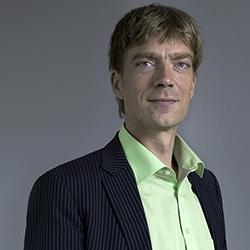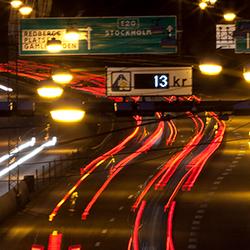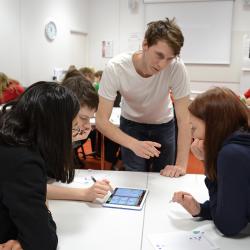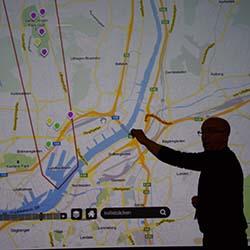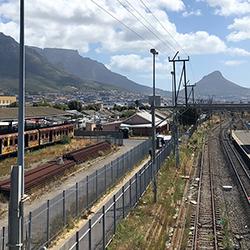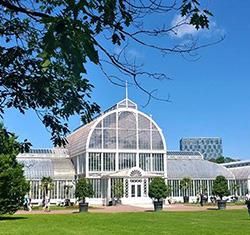
WISE – Well-being in Sustainable cities
Can a low carbon society be achieved with maintained or increasing levels of human well-being? The societal discussion on the transition towards ecological sustainability is dominated by the view that technological improvements will have to do the job in order to avoid lifestyle changes that would imply sacrifices. But what if a stronger focus on well-being could even be a driver for sustainable development?
Results from the emerging field of well-being research suggest, for example, that the link between the level of private consumption and well-being is weak in affluent societies, whereas factors such as time pressure and certain practices like commuting may have negative effects. This may open for new opportunities for pathways that combine a high level of well-being with decreasing emissions.
The overall aim of the Well-being in Sustainable Cities (WISE) project was to facilitate joint knowledge production between scientists and expert civil servants in order to support the transition towards sustainable cities. WISE was carried out in cooperation between Chalmers University of Technology, City of Gothenburg, The Swedish Transport Administration and Region Västra Götaland. Here is a spot on TV4 about the project (in Swedish).
WISE subprojects
- Low carbon transitions for Gothenburg: potentials and well-being consequences
- Radical policies: well-being effects of congestion charges
- Decision models for executing sustainable transitions in the transport sector
- Re-defining urban progress
- Work-time innovations
Jörgen Larsson, researcher in the WISE project, presents Low Carbon Gothenburg at a workshop 4 February 2016 (5:29)
Low carbon transitions for Gothenburg: potentials and well-being consequences
The City of Gothenburg decided on a new climate strategy in September 2014. To support the process consumption-based scenarios have been produced by the project that accounts for potential technical and behavioral changes regarding residential energy, car travel, aviation, food, and other consumption. The aim was to analyze and communicate how a transition towards a low-carbon city could look like and how it may affect people’s well-being. How can the everyday life look like in 2050 when climate targets are met?
The first scenario was published in 2013 (in Swedish, but with a summary in English) and it spurred very much interest. During 2014 a more refined scenario was produced and described in the report "Low-carbon Gothenburg 2.0 Technological potentials and lifestyle changes", here in English and here in Swedish. In September 2014 a national conference was held to disseminate the results and discuss ways for the transition to sustainable consumption. Presentations and documentation can be found here (in Swedish).
Based on data from the Low carbon transition Gothenburg subproject the game Future Happiness Challenge was developed. Teenagers are the main target group and they were also involved in the development of the game. The content of the game is based on the results from the report "Low-carbon Gothenburg 2.0 Technological potentials and lifestyle changes" .
Radical policies: well-being effects of congestion charges
In this sub-project we utilized the introduction of the congestion charge scheme in Gothenburg in 2013 as a natural experiment to analyze the effects and perceptions of a policy instruments that clearly aims to change the behaviours of individuals. A multidisciplinary survey was developed including measures of commuting habits (transport modes, commuting times), socioeconomic variables, geographical variables, attitudes (to the congestion charge, the environment, automobility and public transport), satisfaction with travel and subjective well-being. The survey was distributed to a panel of 3500 car owners in the Gothenburg region before the implementation of the policy scheme, with a follow-up one year later.
Results show that the persons who reduced car commuting used other transport modes to a larger degree than the others already before the tax and also reported better opportunities to change mode. Socioeconomic variables had low statistical significances with the exception of women being more likely to change behaviour than men. Persons adapting their behaviour were slightly more positive to the congestion charge prior to the implementation. All studied groups became more positive during the survey period, but this effect was stronger in the adapting group. The implementation of the congestion charge was not associated with any significant changes in satisfaction with travel or overall well-being in the studied groups.
Se also the Citiscope article How Gothenburg learned to love congestion pricing and the Policy Brief The Gothenburg congestion charge scheme: A pre–post analysis of commuting behavior and travel satisfaction
Decision models for executing sustainable transitions in the transport sector
Transport infrastructure investments influence future levels of greenhouse gas emissions as well as the future level of well-being. Radical political decisions are required to ensure that the transport system support a transition to fair, green and dense cities in the future. Models for decision support such as CBA (Cost Benefit Analysis) and traffic forecasts are important parts of the planning process for these investments.
In this subproject we examined if current decision tools are designed to achieve a sustainable transition, as manifested in politically established goals. Our results indicate that decision support models often assume steadily increasing car traffic far into the future. These traffic forecasts cannot be unified with a goal-oriented planning for a low carbon future, which means that decision support instead must be based on alternative scenarios to achieve an efficient choice of investments. Scenarios for a sustainable transport system needs to be built upon assumptions of structural change, such as reduced level of car ownership, development of housing with great access to urban transit and revised parking policy.
Output from the subproject:
• A complete regional traffic model (SAMPERS) adapted to attain a market share of 40% for public transit. The model can be used directly as a tool in long term goal-oriented planning for transport and infrastructure.
• Mistra Urban Futures Report “Transition to 40 % market share for public transit in the Gothenburg region – a study that unifies backcasting with a traffic forecasting tool (Sampers)”. C Sandbreck, A Almroth (in swedish)
• Mistra Urban Futures Report “Planning officials’ experience of decision support when planning for sustainable urban transport”. K Thoresson. (in swedish)
• Seminar paper “Decision models and international experience for urban mobility planning”. J Stål. (in swedish)
Re-defining urban progress
Both the City of Gothenburg and Region Västra Götaland have ambitious climate targets. In this subproject it was analyzed what it would take to implement these ambitious targets. The subproject aimed to scrutinize attractive paths for societal change, e.g. by adding questions to the SOM-survey regarding which long-term developments the citizens wish.
Another part of the project related to municipal agency. Some climate targets do not only relate to energy and transport but also to other major emission sectors such as the inhabitants consumption patterns regarding food and air-travel. Are there politically, socially and legally feasible strategies for cities to address these areas? The project aimed to identify new opportunities for the city to facilitate action based on the consumption perspective. Analyses of which direct and indirect means that are available to reduce consumption-accounted greenhouse gas emissions at the city level was made.
Work-time innovations
The dominating urban time-use patterns with long work hours and commuting time accompanied by constant time pressure, interrupted only by short air-born escapism, is neither healthy nor ecologically sustainable. This subproject addressed work-time related issues in three ways:
A network with the aim of supporting work-time innovations has been established. A 2-day workshop was arranged with researchers, human resource specialists as well as sustainability managers to start up the subproject, and now there are regular network meeting.
One research study focuses on urban time use trends. Changes in time use patterns can either support or hinder sustainable development. The rich time use data available from 1991 onwards from Statistics Sweden was used to analyse how time use patterns have changed over time. In-depth analyses was carried out to evaluate the consequences of time use trends on both greenhouse gas emissions and on individual well-being. These then enabled a further investigation of lifestyles, in terms of time use patterns, that support the achievement of lower greenhouse gas emissions while maintaining high levels of well-being.
Another study focus on the consequences of work-time autonomy, referring to a policy which facilitates time use patterns shaped by individual needs and preferences. The City of Gothenburg has recently introduced a right for all its employees to work either full time or part time. This new time policy has the potential to lead to major consequences for both individuals, organizations, and the society at large.
WISE - An UNEPs 10YFP Sustainable Consumption and Production Initiative
The WISE project is an initiative within UNEPs 10YFP Sustainable Production and Consumption (SCP) and is registered in the worldwide SCP initiatives database. The database aims to be a source of inspiration by gathering initiatives around the world with focus on sustainable consumption and production. Read more
The work continues...
Within the project Guiding Urban Transitions for Sustainability (GUTS) the lessons and resluts from the WISE project continues.
Read the stories of what came next - Research-based game highlights climate change issue in Gothenburg & Less traffic and more public transport
